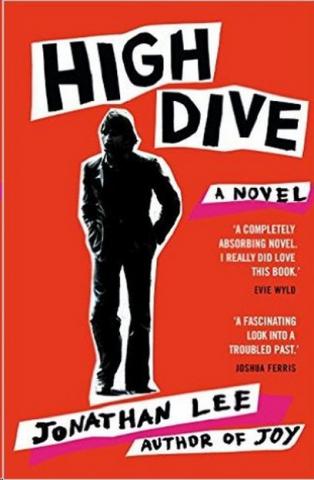A Bomb Is Ticking in Jonathan Lee’s Riveting ‘High Dive’

High Dive
By Jonathan Lee
Knopf
318 pages
On October 12, 1984, a time bomb planted by the IRA exploded in the Grand Hotel in Brighton, England. The target of the bombing, British Prime Minister Margaret Thatcher, on hand for the annual gathering of her Conservative Party Conference, walked away unharmed. Five other people died and many suffered serious injuries.
On this tragic real-life event, British writer Jonathan Lee has grafted High Dive, his third novel and first to be published in the U.S. The story centers around three fictional characters – Dan, a young IRA bomb maker from the slums of Belfast; Philip “Moose” Finch, the Grand Hotel’s middle-aged assistant manager, and his teenage daughter, Freya. All three are deftly brought to life, as are some minor players, from the war-battered hard men of Northern Ireland to staff members of the old, elegant seaside hotel.
High Dive gets off to an electrifying start with Dan’s initiation into the IRA, involving a handgun and two dogs he’s ordered to kill. Dan—who even at the age of 18 feels “that if a bullet was going to hit him now it was coming from a gun that had already been fired”—meets the challenge in a surprising way.
From there, the novel jumps six years ahead to the weeks leading up to the Prime Minister’s visit to Brighton. Moose, the assistant manager, has worked hard to persuade the Tories to hold the conference at his hotel, and expects to be rewarded – provided things run smoothly –with a major promotion. At the same time, his daughter Freya, working as a hotel receptionist, tries to decide what she wants for the future.
Lee subverts the expectations of a conventional thriller in several ways. He’s more interested in his characters’ inner lives, their doubts, convictions, daily perceptions, than the ticking bomb. Though many pages are devoted to Moose and Freya, Dan’s narrative has the greatest charge—if only because the others’ overriding concerns (career advancement, what to do with my life) are stuff we all have to deal with. The accounts of Dan’s survival strategies in Belfast during the height of the Troubles, and later while working undercover in England, are far more compelling.

Take, for example, his reflections on a forthcoming IRA operation:
“The truth was that on an operation you felt clean of guilt and will. It was day-to-day Belfast that made you feel dirty. The nowness of being undercover, the sprint of adrenalin in your blood. It seemed to have a purifying quality. Everything you did was so silently precise, every step had to link so carefully to the next, that when you finally lay down at the end of the day your mind was a vast empty space. No doubt, no regret. All miseries for a moment receded. They made space for the satisfaction of a job well done.”
Lee chooses a surprising approach to the minute-to-minute planting of the explosive device in Room 629’s bathroom wall. Most of the riveting details are rehearsed during a long conversation in Belfast, between Dan and his IRA handler Dawson. (At one point Dawson calls the young bomb-maker “Pinkie,” an evident nod to Graham Greene’s Brighton Rock.) It works due to the expert pacing, clever dialogue and dramatic struggle of personalities between these two willful men.
Still, even in a novel that eschews the trappings of a thriller, long stretches are given over to characters’ backstories and internalized conflicts that slow its momentum. Scenes with secondary characters seem ripe for trimming, while insights about evolving attitudes and beliefs are sometimes hit too hard, leaving more subtle moments unexplored.
At its best, High Dive combines the keenly observed beauty of the natural realm and the threat of violence pulsing underneath:
“As [Dan] walked past a stray dog peeing on a lamp post now he briefly imagined himself back into the Grand Hotel, looking out the window, thinking there was something bland about the English sea and sky most of the time, something huge and dramatic but disappointing, blank and grey and everyday. The prow of a ship unmoving, September’s clouds falling into water, September’s water rippling into clouds, grimy foam flickering on the tops of waves. The word ‘seaside,’ with its colorful sing-song, seemed to him to be a kind of false advertising. What he loved was grassland, shrubs. A sentimental preference for green. The dog limped away from the lamp post, looking only slightly ashamed.”
Highbrow Magazine chief book critic Lee Polevoi, author of The Moon in Deep Winter, is completing a new novel.
For Highbrow Magazine






























































































































































































































































































































